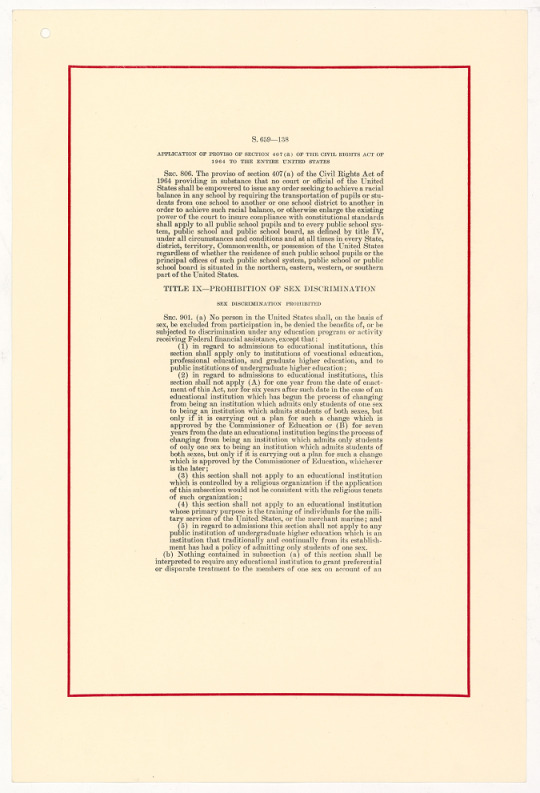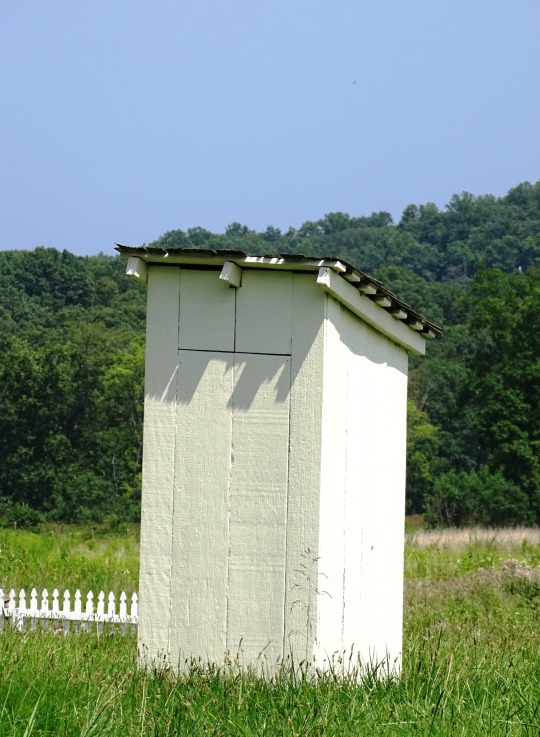#order issued by the Secretary of School Education
Text
Jammu and Kashmir: जम्मू-कश्मीर में एफएटी के 300 से ज्यादा स्कूलों को बंद करने के आदेश, महूबबा मुफ्ती ने कहा- प्रदेश के लोगों का कुचला जा रहा भविष्य
Jammu and Kashmir: जम्मू-कश्मीर में एफएटी के 300 से ज्यादा स्कूलों को बंद करने के आदेश, महूबबा मुफ्ती ने कहा- प्रदेश के लोगों का कुचला जा रहा भविष्य
Image Source : PTI/FILE IMAGE
PDP Chief Mehbooba Mufti
Highlights
जम्मू-कश्मीर में एफएटी के 300 से ज्यादा स्कूलों को बंद करने के आदेश
भ्रष्टाचार और धोखाधड़ी के अलावा सरकारी जमीन पर अतिक्रमण करने का आरोप
जम्मू-कश्मीर के लोगों के भविष्य को ‘कुचलने’ के लिए उन पर किया गया ‘एक और अत्याचार’ है: मुफ्ती
Jammu and Kashmir: पीपुल्स डेमोक्रेटिक पार्टी (पीडीपी) की प्रमुख महबूबा मुफ्ती ने रविवार को कहा कि…

View On WordPress
#FAT schools in Jammu and Kashmir#Jammu and Kashmir News#Mehbooba Mufti#National Hindi News#order issued by the Secretary of School Education#the Chief Education Officers of various districts have been asked to seal the FAT operated schools within 15 days. जम्मू-कश्मीर में एफएटी के#महूबबा मुफ्ती ने कहा- प्रदेश के लोगों का कुचला जा रहा भविष्य
0 notes
Text
Scotland’s education secretary ordered a conference on school violence within 48 hours of being sent a video of a girl being lured into a changing room, temporarily blinded with Coke and beaten about the head and face as classmates watched.
Jenny Gilruth and other ministers were bombarded with emails and letters cataloguing assaults on pupils before they decided to act on the problem.
At one point in early 2023, parents, youngsters and staff were sending messages, often containing videos of attacks from social media, several times a week, according to more than 100 pages of correspondence released to The Scotsman under freedom of information laws.
The video of the child being thrashed in the changing room was sent to Gilruth after she took up her job, by a distraught parent who said their daughter had been the victim of “a premeditated attack”.
They feared their child’s life was “at risk”, when — unable to see because of the soft drink in her eyes — other pupils started “kicking her in the face and head, bouncing her head off a wall and kicking her in other areas”.
Other parents outlined allegations of sexual assault, of a primary pupil who was “dragged” into school toilets before being kicked unconscious, and of an assault so serious it “could easily have left the pupil for dead”.
Gilruth, a former teacher, was appointed in March and ordered her summit in May. The government has announced a series of responses.
A study in November found two thirds of staff at more than 500 Scottish schools surveyed had encountered verbal abuse in the previous week. Another 59 per cent had dealt with violence between pupils in the past seven days.
The study’s authors described “pupils persistently infringing rules, making cheeky or impertinent remarks, engaging in general rowdiness, mucking about and deliberately excluding others”. Discipline, the experts authors concluded, had got worse since 2016.
The official report raised particular concern about behaviour at primary schools, which was also reflected in messages to ministers. A parent got in touch with the government to describe a “drastic increase in the level of bullying and violence within the school grounds” at one primary.
Much of the debate on school violence has focused on controversy around low levels of exclusions. School leaders tend not to send disruptive students home, preferring what is called “restorative practice”.
This stance was raised by some of those complaining to the government. “The policy is not working. It is creating tensions between education staff, police and the community,” one correspondent said.
Some teachers and psychologists argue that excessive use of exclusions and suspensions can cause more trouble.
There are also concerns about internet culture, with many incidents being filmed and uploaded to social media and some episodes of bullying or violence being linked to online bigotry against women and girls or minorities.
A Scottish government spokesman said: “Scotland’s schools should be safe learning environments for all. Violent and abusive behaviour towards pupils or staff is completely unacceptable.
“The education secretary has been clear that this must be improved, and has set out five steps to address concerns around behaviour, including bringing forward a national action plan to set out a range of actions at national, local and school level, and a dedicated approach to responding to issues surrounding misogyny.”
61 notes
·
View notes
Text
To point out that right-wing culture warriors conflate academic freedom and free speech is, in a sense, to give them too much credit. In practice they subscribe to ‘free speech’ and ‘academic freedom’ only when, and to whichever ideological ends, it suits them. The new Higher Education Act was given royal assent just nine days after the passage of the Public Order Act, which eviscerates the right to peaceful protest in the UK – just in time to empower the Metropolitan Police to arrest six members of the anti-monarchy group Republic on the morning of the coronation, with little outcry from the free speech brigade. Rishi Sunak has defended the police and their new powers, saying that people have the right ‘to go about their day-to-day lives without facing serious disruption’. ‘Serious disruption’ – a phrase that appears 94 times in the Public Order Act – now legally includes many of the mildest tactics used by activist groups from the women of Greenham Common to Extinction Rebellion, including locking on, blocking roads and blockading oil terminals. It also includes, according to the Metropolitan Police, carrying rape alarms, for which three women’s safety volunteers were arrested ahead of the coronation.
Right-wing newspapers unironically celebrated Sunak’s appointment of a free speech tsar as another volley in his war on ‘woke nonsense’ – a campaign, as Sunak described it last year, against objectionable viewpoints that have ‘permeated public life’: that biology doesn’t determine gender, that language is malleable, that Britain must own up to its colonial past. You can seek to eradicate such viewpoints from universities. You can also believe that universities should become no-holds-barred venues for free and open debate. But it takes a certain mental flexibility to think that the one can be a way of achieving the other.
Does the right contradict itself? Very well then it contradicts itself. The new Higher Education Act appears on its face to be in conflict with the ‘Prevent duty’ created by the Counter-Terrorism and Security Act 2015, sponsored by Theresa May when she was home secretary. The government guidance on Prevent says that universities should prohibit visiting speakers who are likely to express ‘extremist views that risk drawing people into terrorism or are shared by terrorist groups’, even where the expression of such views is legal. In 2020 the Department of Education issued guidance on implementing the statutory curriculum which included the requirement that ‘schools should not under any circumstances use resources produced by organisations that take extreme political stances on matters,’ and listed as an example of an ‘extreme’ stance the ‘desire to abolish … capitalism’. Under a new speaker vetting scheme introduced by Jacob Rees-Mogg last year, eight people have been disinvited from speaking at government events, including Dan Kaszeta, a chemical weapons expert, and Kate Devlin, who studies the interaction between humans and technology. Both were told their invitations had been rescinded because they had criticised the Tories on social media.
The Higher Education Act makes universities and student unions that are derelict in their duty to uphold free speech liable to investigations and fines by the free speech tsar, as well as to civil claims brought by anyone who feels they have suffered ‘adverse consequences’ because of a university or student union’s ‘action or inaction’. It’s not clear just what this covers, but here are some possibilities, ordered from the certainly actionable to the potentially so: a student union voting to no-platform fascists; a university failing to quash student protest at a visit from, say, a war criminal; a student group putting out a statement condemning a professor for being transphobic; faculty changing a syllabus in response to student complaints about its racist content; students peacefully protesting outside a lecture; a geography department voting not to hire a climate change denier. It isn’t difficult to imagine how these could be framed as violations of the new law; it is for this reason that its opponents worried, as the bill made its way through Parliament, about the vexatious claims it seems bound to generate. In a letter sent last year to the secretary of state for education, Gillian Keegan, the president of the Union of Jewish Students, warned that the bill could ‘foreseeably allow a range of extremists, including Holocaust deniers, legal recourse to obtain compensation if they are denied a platform’. ‘Adverse consequences’ is an extremely low bar: anyone who has been picketed or called names on Twitter might feel they have grounds to make a legal claim. Traditionally, it has been thought that a commitment to free expression required universities not to intervene when students protest or when faculty members publicly criticise other academics or politicians. But the new law threatens to redefine such non-intervention as itself a failure to promote free speech.
28 notes
·
View notes
Photo



“No person in the United States shall, on the basis of sex, be excluded from participation in, be denied the benefits of, or be subjected to discrimination under any education program or activity . . . “ On 6/23/1972, Title IX was signed.
Series: Enrolled Acts and Resolutions of Congress, 1789 - 2013
Record Group 11: General Records of the United States Government, 1778 - 2006
Transcription:
Ninety-second Congress of the United States of America
AT THE SECOND SESSION
Begun and held at the City of Washington on Tuesday, the eighteenth day of January, one thousand nine hundred and seventy-two
An Act
To amend the Higher Education Act of 1965, the Vocational Education Act of 1963, the General Education Provisions Act (creating a National Foundation for Postsecondary Education and a National Institute of Education), the Elementary and Secondary Education Act of 1965, Public Law 874, Eighty-first Congress, and related Acts, and for other purposes.
Be it enacted by the Senate and House of Representatives of the United States of America in Congress assembled, That this Act may be cited as the "Education Amendments of 1972".
General Provisions
SEC. 2 (a) As used in this Act-
(1) the term "Secretary" means the Secretary of Health, Education, and Welfare: and
(2) the term "Commissioner" means the Commissioner of Education;
unless the context requires another meaning.
(b) Unless otherwise specified, the redesignation of a section, subsection, or other designation by any amendment in this Act shall include the redesignation of any reference to such section, subsection, or other designation in any Act or regulation, however styled.
(c) (1) Unless otherwise specified, each provision of this Act and each amendment made by this Act shall be effective after June 30, 1972, and with respect to appropriations for the fiscal year ending June 30, 1973, and succeeding fiscal years.
(2) Unless otherwise specified, in any case where an amendment made by this Act is to become effective after a date set herein, it shall be effective with the beginning of the day which immediately follows the date after which such amendment is effective.
(3) In any case where the effective date for an amendment made by this Act is expressly stated to be effective after June 30, 1971, such amendment shall be deemed to have been enacted on July 1, 1971.
TITLE I - HIGHER EDUCATION
PART A - COMMUNITY SERVICE AND CONTINUING EDUCATION PROGRAMS
EXTENSION OF AUTHORIZATION OF APPROPRIATIONS
SEC. 101. (a) Section 101 of the Higher Education Act of 1965 is amended by striking out all that follows "authorized to be appropriated" and inserting in lieu thereof the following: "$10,000,000 for the fiscal year ending June 30, 1972, $30,000,000 for the fiscal year ending June 30, 1973, $40,000,000 for the fiscal year ending June 30, 1974, and $50,000,000 for the fiscal year ending June 30, 1975.".
(b) The amendment made by subsection (a) shall be effective after June 30, 1971.
SPECIAL PROGRAMS AND PROJECTS RELATING TO NATIONAL AND REGIONAL PROBLEMS
SEC. 102. (a) (1) Sections 106, 107, 108, 109, 110, and 111 of the Higher Education Act of 1965, and all references thereto, are redesignated as sections 107, 108, 109, 110, 111, and 112, respectively. Title I of such Act is amended by inserting after section 105 the following new section:
[page 2]
S. 659-138
APPLICATION OF PROVISO OF SECTION 407 (a) of the Civil Rights Act of 1964 providing in substance that no court or official of the United States shall be empowered to issue any order seeking to achieve a racial balance in any school by requiring the transportation of pupils or students from one school to another or one school district to another in order to achieve such racial balance, or otherwise enlarge the existing power of the court to insure compliance with constitutional standards shall apply to all public school pupils and every public school system, public school and public school board, as defined by title IV, under all circumstances and conditions and at all times in every State, district, territory, Commonwealth, or possession of the United States regardless of whether the residence of such public. school or public school board is situated in the northern, eastern, western, or southern part of the United States.
[centered] TITLE IX -- PROHIBITION OF SEX DISCRIMINATION [/centered]
[centered] SEX DISCRIMINATION PROHIBITED [/centered]
Sec. 901. (a) No person in the United States shall, on the basis of sex, be excluded from participation in, be denied the benefits of, or be subjected to discrimination under any education program or activity receiving Federal financial assistance, except that:
(1) in regard to admissions to educational institutions, this section shall apply only to institutions of vocational education, professional education, and graduate higher education, and to public institutions of undergraduate higher education;
(2) in regard to admissions to educational institutions, this section shall not apply (A) for one year from the date of enactment of this Act, nor for six years after such date in the case of an educational institution which has begun the process of changing from being an institution which admits only students of one sex to being an institution which admits students of both sexes, but only if it is carrying out a plan for such a change which is approved by the Commissioner of Education or (B) for seven years from the date an educational institution begins the process of changing from being an institution which admits only students of only one sex to being an institution which admits only students of both sexes, but only if it carrying out a plan for such a change which is approved by the Commissioner of Education, whichever is the later;
(3) this section shall not apply to an educational institution which is controlled by a religious organization if the application of this subsection would not be consistent with the religious tenets of such organization;
(4) this section shall not apply to an educational institution whose primary purpose is the training of individuals for the military services of the United States, or the merchant marine; and
(5) in regard to admissions this section shall not apply to any public institution of undergraduate higher education which is an institution that traditionally and continually from its establishment has had a policy of admitting only students of one sex.
(b) Nothing contained in subsection (a) of this section shall be interpreted to require any educational institution to grant preferential or disparate treatment to the members of one sex on account of an
[page 3]
[centered] S. 659 -- 139 [/centered]
imbalance which may exist with respect to the total number or percentage of persons of that sex participating in or receiving the benefits of any federally supported program or activity, in comparison with the total number of percentage of persons of that sex in any community, State, section, or other area: Provided. That this subsection shall not be construed to prevent the consideration in any hearing or proceeding under this title of statistical evidence tending to show that such an imbalance exists with respect to the participation in, or receipt of the benefits of, any such program or activity by the members of one sex.
(c) For purposes of this title an educational institution means any public or private preschool, elementary, or secondary school, or any institution vocational, professional, or higher education, except that in the case of an educational institution composed of more than one school, college, or department which are administratively separate units, such term means each such school, college, or department.
[centered] FEDERAL ADMINISTRATIVE ENFORCEMENT [/centered]
SEC. 902. Each Federal department and agency which is empowered to extend Federal financial assistance to any education program or activity, by way of grant, loan, or contract other than a contract of insurance or guaranty, is authorized and directed to effectuate the provisions of section 901 with respect to such program or activity by issuing rules, regulations, or orders of general applicability which shall be consistent with achievement of the objectives of the statute authorizing the financial assistance in connection with which the action is taken. No such rule, regulation, or order shall become effective unless and until approved by the President. Compliance with any requirement adopted pursuant to this section may be effected (1) by the termination of or refusal to grant or to continue assistance under such program or activity to any recipient as to whom there has been an express finding on the record, after opportunity for hearing, of a failure to comply with such requirement, but such termination or refusal shall be limited to the particular political entity, or part thereof, or other recipient as to whom such a finding has been made, and shall be limited in its effect to the particular program, or part thereof, in which such noncompliance has been so found, or (2) by any other means authorized by law: Provided, however, That no such action shall be taken until the department or agency concerned has advised the appropriate person or persons of the failure to comply with the requirement and has determined that compliance cannot be secured by voluntary means. In the case of any action terminating, or refusing to grant or continue, assistance because of failure to comply with a requirement imposed pursuant to this section, the head of the Federal department or agency shall file with the committees of the House and Senate having legislative jurisdiction over the program or activity involved a full written report of the circumstances and the grounds for such action. No such action shall become effective until thirty days have elapsed after the filing of such report.
[centered] JUDICIAL REVIEW [/centered]
SEC. 903. Any department or agency action taken pursuant to section 1002 shall be subject to such judicial review as may otherwise be provided by law for similar action taken by such department or agency on other grounds. In the case of action, not otherwise subject to judicial review, terminating or refusing to grant or to continue financial assistance upon a finding of failure to comply with any requirement imposed pursuant to section 902, any person aggrieved (including any State or political subdivision thereof and any agency of either) may obtain judicial review of such action in accordance
107 notes
·
View notes
Text
Fun fact: in high school my guidance counselor (the Head of Guidance) told me to take typing so I could get "a good job as a secretary" -- which! secretaries perform important functions! but it speaks to the deep sexism of my high school guidance counselor, who also told me that I would never get into my alma mater (an R1) and should go to community college instead. Again! community colleges are GREAT and a vital part of our educational system and should get more respect, but the REASON he was saying that was because I was A Girl, which is NOT great.
fuck that guy, i hope he got hit by a truck. (i just looked, no such luck, he's living the good life in retirement, this is very unfair).
anyway this is why i unilaterally decided the Science Nun was my guidance counselor instead. everyone was upset about this except me and the Science Nun. now, the Science Nun was qualified to do this and in fact was assigned as a guidance counselor for about 40 people, but I had been assigned to the Head of Guidance instead because of where my surname fell in the alphabet. the principal tried to make me go back to the HoG and it turns out you can make someone sit in a particular office but you can't make them agree to the classes assigned. it was all on paper, the student and GC were supposed to collaborate on setting up a course schedule, and HoG and I disagreed PROFOUNDLY about what courses it was appropriate for me to take. I thought I should be taking honors everything and visual arts. he thought i should be taking non-honors everything and typing. so instead I would ignore him and refuse to agree to his version of the courses. I would go to the Science Nun with my list, and the Science Nun would review my classes, agree they were appropriate, and sign the paper. when she got called out on this her response was to complain that HoG refused to sign my paperwork even though my paperwork was in order, with a fully appropriate course list, and that was Not OK, and frankly she was right. She threw DOWN over the HoG's version of my proposed course list and pointed out that I was first or second in all my extant honors classes and why? exactly? was HoG proposing I drop down a level?
the school then complained to my parents which was foolish on their part, because this meant they were suddenly fighting my ex-Catholic mother, and no one has less respect for a Catholic priest school principal than an ex-Catholic with ADHD. Like they fully set themselves up to be in a quarrel with a mother-maiden-crone trio of Angry Science Nerds and then were all [surprised pikachu face].
So the Science Nun became, officially, my guidance counselor and they did not reassign me away from her the next year, so that's how that went for them.
Anyway when three years later my younger sister told Guidance Department Nun that she was an atheist who thought marijuana and sex work should be legal, the school wisely did not make an issue of it.
17 notes
·
View notes
Text
Former Education Secretary Betsy DeVos said at a conservative education summit Saturday that she believes the Department of Education should be abolished, according to the Florida Phoenix.
Driving The News: DeVos' rejection of the Department she once led was well-received at the Moms for Liberty summit, which provided training on how to develop conservative majorities on local school boards, the Phoenix reported.
• "I personally think the Department of Education should not exist," DeVos told the crowd in Tampa, Florida, per the Phoenix.
The Big Picture: The summit is part of the so-called parental rights movement, which arose in response to efforts to curb the spread of COVID-19 in schools, particularly mask and vaccination mandates.
• Florida has been ground zero for many of the efforts to increase parental involvement in, and reduce teachers' autonomy over, classroom decisions.
• Florida Gov. Ron DeSantis also issued an executive order in August 2021 banning mask mandates in schools.
• The state's so-called "Don't Say Gay" bill, which went into effect on July 1, bans instruction on sexual orientation and gender identity for children in kindergarten through third grade. It also allows parents to sue schools and teachers who discuss these topics.
• The state's Board of Education banned schools from teaching critical race theory — a legal theory about how racial discrimination influenced America's foundations — last June. Critical race theory is not taught in public schools. The ban led to the rejection of dozens of math textbooks that "contained prohibited topics."
Background: DeVos is not the only Republican to suggest abolishing the Department of Education.
• Rep. Thomas Massie (R-Ky.) introduced a bill in 2021 to abolish the Department, claiming that "Unelected bureaucrats in Washington, D.C., should not be in charge of our children’s intellectual and moral development."
• The bill's co-signers included many of the House's most conservative members, such as Reps. Lauren Boebert (R-Colo.) and Matt Gaetz (R-Fla.).
#us politics#news#axios#trump administration#betsy devos#department of education#Florida phoenix#moms for liberty#fl#Florida#gov. ron desantis#don't say gay bill#COVID-19#critical race theory#Rep. Thomas Massie#H.R. 899#rep. lauren boebert#rep. matt gaetz#2022
59 notes
·
View notes
Text
Published: Dec 21, 2022
The Taliban have banned women from universities in Afghanistan, sparking international condemnation and despair among young people in the country.
The higher education minister announced the regression on Tuesday, saying it would take immediate effect.
The ban further restricts women's education - girls have already been excluded from secondary schools since the Taliban returned last year.
Some women staged protests in the capital Kabul on Wednesday.
"Today we come out on the streets of Kabul to raise our voices against the closure of the girls' universities," protesters from the Afghanistan Women's Unity and Solidarity group said.
The small demonstrations were quickly shut down by Taliban officials.
Female students have told the BBC of their anguish. "They destroyed the only bridge that could connect me with my future," one Kabul University student said.
"How can I react? I believed that I could study and change my future or bring the light to my life but they destroyed it."
Another student told the BBC she was a woman who had "lost everything".
She had been studying Sharia Islamic law and argued the Taliban's order contradicted "the rights that Islam and Allah have given us".
"They have to go to other Islamic countries and see that their actions are not Islamic," she told the BBC.
The United Nations and several countries have condemned the order, which takes Afghanistan back to the Taliban's first period of rule when girls could not receive formal education.
The UN's Special Rapporteur to Afghanistan said it was "a new low further violating the right to equal education and deepens the erasure of women from Afghan society."
The US said such a move would "come with consequences for the Taliban".
"The Taliban cannot expect to be a legitimate member of the international community until they respect the rights of all in Afghanistan," said Secretary of State Antony Blinken in a statement.
"No country can thrive when half of its population is held back."
Western countries have demanded all year that the Taliban improve female education if they wish to be formally recognised as Afghanistan's government.
However in neighbouring Pakistan, the foreign minister said while he was "disappointed" by the Taliban's decision, he still advocated engagement.
"I still think the easiest path to our goal - despite having a lot of setbacks when it comes to women's education and other things - is through Kabul and through the interim government," said Bilawal Bhutto Zardari.
The Taliban had promised a softer rule after seizing power last year following the US' withdrawal from the country. However the hardline Islamists have continued to roll back women's rights and freedoms in the country.
The Taliban's leader Hibatullah Akhundzada and his inner circle have been against modern education - particularly for girls and women.
There has been opposition to this stance from more moderate officials, and analysts say this issue has been a point of factional division all year.
Yet on Tuesday, the education ministry said its scholars had evaluated the university curriculum and environment, and attendance for girls would be suspended "until a suitable environment" was provided.
It added that it would soon provide such a setting and "citizens should not be worried".
However in March, the Taliban had promised to re-open some high schools for girls but then cancelled the move on the day they were due to return.
The crackdown also follows a wave of new restrictions on women in recent months. In November, women were banned from parks, gyms and public baths in the capital.
A university lecturer and Afghan activist in the US said the Taliban had completed their isolation of women by suspending university for them.
"This was the last thing the Taliban could do. Afghanistan is not a country for women but instead a cage for women," Humaira Qaderi told the BBC.
The Taliban had just three months ago allowed thousands of girls and women to sit university entrance exams in most provinces across the country.
But there were restrictions on the subjects they could apply for, with engineering, economics, veterinary science and agriculture blocked and journalism severely restricted.
Prior to Tuesday's announcement, universities had already been operating under discriminatory rules for women since the Taliban takeover in 2021.
There were gender segregated entrances and classrooms, and female students could only be taught by women professors or old men.
However, women were still getting education. Unesco noted on Tuesday that from 2001 and 2018 - the period between Taliban rule - the rate of female attendance in higher education had increased 20 times.
Several women have told the BBC they gave up after the Taliban regained rule because of "too many difficulties".

Issue splits Taliban
Analysis by Yogita Limaye, BBC South Asia correspondent
There has been speculation for over a month now that the Taliban government would ban university education for women.
One female student predicted it a few weeks ago. "One day we will wake up and they will say girls are banned from universities," she had said.
And so, while many Afghans might have expected that sooner or later this decision would be taken, it still comes as a shock.
Last month women were barred from parks, gyms and swimming pools. In March this year, the Taliban government did not deliver on its commitment to open secondary schools for girls.
From conversations with Taliban leaders over the past year, it is evident that there is disagreement within the Taliban on the issue of girls' education.
Off the record, some Taliban members have repeatedly said they are hopeful and working to try and ensure girls get an education.
Girls were allowed to sit for graduation exams for secondary schools two weeks ago, in 31 of Afghanistan's 34 provinces, even though they haven't been allowed to be in school for more than a year.
That provided a glimmer of hope, which has now been extinguished.

Iran has shown what's possible when the citizens have had enough of authoritarian regimes.
#Afghanistan#Islamic Republic of Afghanistan#islam#islamic regime#Taliban#islamic misogyny#religion#Shabnam Nasimi#religion is a mental illness
24 notes
·
View notes
Text
















World Toilet Day
World Toilet Day…at first glance, this seems like an unlikely candidate for a holiday and more like some sort of joke, but the day is nowhere as trivial or humorous as it may seem. All in all, it strives to draw attention to various sanitation issues around the world and work towards resolving them.
Despite access to proper sanitation being declared a basic human right, one in three people across the globe, so some 2.5 billion people in total, do not have regular access to a toilet. Additionally, even amongst those who do have such access, unclean and unsafe toilets pose problems of their own, including contributing towards the spread of diseases like cholera, typhoid and hepatitis—in some parts of Africa, diarrhea is one of the main child-killers.
Open defecation is also responsible for increasing the number of sexual assaults perpetrated on women and children. Furthermore, when young girls begin menstruating, the lack of privacy forces them to stay home from school, thus limiting their chances of getting a basic education and, what comes after that, a decent job in the future. World Toilet Day’s ultimate goal is to allow everyone on the planet to take care of their most basic needs without having to fear for their safety.
History of World Toilet Day
World Toilet Day was created by the World Toilet Organization in 2001. Secretary-General Ban Ki-moon of the United Nations said: “We have a moral imperative to end open defecation and a duty to ensure women and girls are not at risk of assault and rape simply because they lack a sanitation facility.”
He went on to talk about how having to defecate openly infringes on human safety and dignity, and how women and girls risk rape and abuse as they wait until night falls to relieve themselves because they lack of access to a toilet that offers privacy. Another issue is that toilets generally remain inadequate for populations with special needs, such as the disabled and elderly.
Since its inception, World Toilet Day has played a vital role in challenging governments, businesses and other groups to make changes. It has also worked towards breaking various taboos surrounding the topic, in order to facilitate discussion and lead to the creation of better, safer solutions.
World Toilet Day Timeline
3000 BC Pipes carry waste
Even a few thousand years ago various people groups (in Scotland, India, Mesopotamia and more) would use pipe systems to carry waste out of their houses and into rivers or streams.
100-200 AD Group toilets for soldiers
Remains of Housesteads Roman Fort at Hadrian’s Wall in the UK reveals that perhaps 20 or more soldiers would all use a common ‘toilet’ (essentially these were long benches with holes in them) at the same time.
Middle Ages (500-1500 AD) Garderobes are used
Predating the toilet, “garderobes” were little rooms that hung over the sides of the castle. This little closet had a bench with a hole in it where the waste would drop into a moat or pit below.
During this time, many people would also use chamber pots, which would be kept in bedrooms or ‘chambers’ and then emptied (sometimes simply thrown out the window) when full. This function carried on for quite some time.
1596 Flushing toilet is invented
Although its widespread use did not arrive until a couple of centuries later, the first flushing toilet was described by Sir John Harington, an English courtier. This toilet was a pot that used gravity to feed water through it from a cistern that sat upstairs.
1775 First toilet patent issued
Scottish Inventor Alexander Cummings was the creator of the important pipe that ran in an S-shape below the bowl. This ingenious design used the water in the bowl to seal off the sewer gas from below and eventually led the way to mass production of the toilet.
1829 First toilets in a hotel
The Tremont Hotel in Boston, USA installed eight indoor water closets for its guests.
1866 World’s first bathroom showroom
Marlboro Works showroom is opened by English sanitary engineer Thomas Crapper (yes, that’s his real name). At a time when people didn’t speak much about their bodily functions, this public display of toilets was revolutionary.
1880s Thomas Crapper invents the ballcock
Toilets that have this invention, the “ballcock”, are less likely to overflow. Crapper created the floating valve as well as eight other patented improvements for plumbing and sewage. He also did a lot of plumbing for British royalty around this time.
1910 Elevated water tank
A similar design to today’s toilets, the closed water tank and bowl moves into common use.
1986 Sensor flushes introduced
In Japan, the first toilets with sensors that would flush on their own were used.
2001 World Toilet Organization is created
The World Toilet Organization moves to educate people about the sanitation crisis. Even in today’s modern times, more than 2 billion people across the world still do not have access to a toilet.
2013 World Toilet Day made official by the UN
In an effort to raise awareness and support for places where people don’t have proper access to sanitation, the first UN World Toilet Day is celebrated on November 19, 2013.
How to celebrate World Toilet Day
I think by now it’s been made abundantly clear that World Toilet Day is far from being a joke, dealing instead with the protection of one of humanity’s most basic rights. So how can you help? There are a number of things you could do. For starters, why not visit the World Toilet Day website, Facebook page or Twitter account and share the message across social media platforms?
This may seem like a tiny, unimportant gesture, but raising awareness about serious problems is one of the things social media does best, aside from bombarding you with pictures of babies and kittens. The more people know about a problem, the more money can be raised to fight it, as the ALS Ice Bucket Challenge so perfectly demonstrated. So don’t think your clicking “share” means anything. It doesn’t.
Another thing you could do as a way of observing World Toilet Day Would be of course to make a donation, so if you have the means, know that every dollar helps.
Source
#Cold Springs Pony Express Station Ruins#Marstrand#Coney Island#travel#New York City#Folsom State Prison Museum#Gettysburg National Military Park#Kings Landing Historical Settlement#Canada#original photography#cityscape#architecture#landscape#rest area#Calico Ghost Town#World Toilet Day#19 November#WorldToiletDay#outhouse#log cabin#restroom#washroom#WC#vacation#Paoli Battlefield Site#Seligman#Québec#USA#USS LEXINGTON Aircraft Carrier Museum-Corpus Christi#Folsom Prison Museum
4 notes
·
View notes
Text

I posted 11,002 times in 2022
That's 846 more posts than 2021!
177 posts created (2%)
10,825 posts reblogged (98%)
Blogs I reblogged the most:
@beatrice-otter
@pavlovs-pigeon
@brawltogethernow
@vesperway
@audreycritter
I tagged 1,968 of my posts in 2022
#hoc est meum - 245 posts
#lmao - 84 posts
#mdzs - 75 posts
#ask - 61 posts
#laugh rule - 34 posts
#locked tomb - 29 posts
#batman - 25 posts
#cql - 22 posts
#blogblogging - 20 posts
#anonymous - 19 posts
Longest Tag: 140 characters
#the thing is tim has definitely not gotten that much taller so. bernard shrank??? i want to write a fic about the diegetic supernatural inci
My Top Posts in 2022:
#5
Oh protip for recently diagnosed glasses-wearers, that they don't necessarily tell you at any point in the acquisition process:
The 'polishing your glasses on your shirt' trope in fiction goes back to when glasses were actually made with glass, which is as you learn in any introductory geology course fairly abrasion-resistant.
Modern lenses, which are plastic--yeah yadda yadda hi-poly resin blah blah, it's plastic--are less robust, and if you go around rubbing smudges off on random fabrics without rinsing off any and all dust particles first you will micro-scratch them foggy faster than you'd like.
1,787 notes - Posted March 16, 2022
#4
Me trying to determine what range of months it is reasonable to feature a pregnant goat in a farm scene: gotta go to the How To Breed Goats website.
How To Breed Goats has informed me that while continuing to breed your female goat past age 10 is likely to significantly shorten her life expectancy, so maybe don't do that, the males are going to die in what's middle age for a not-overbred female regardless.
because goats have a heat/rut cycle, and apparently going into rut is really bad for the health.
a/b/o fandom i hope someone has taken notes on this and done some hilarious angst about the short lifespan of the average alpha.
2,799 notes - Posted September 7, 2022
#3
again, so many cql/mdzs modern AUs set in america and never one in which nie huaisang is like:
so i knew this dude in high school, right, who invented a new kind of nuke and so naturally the government recruited him to work in Defense before he even finished college
but then he went rogue about an ethics issue with refugee camps and became the most famous terrorist in living memory and died in a police shootout
and that's the guy i, the Secretary of Education, want to help me kill the President.
3,477 notes - Posted April 18, 2022
#2
i do not like this update that collapses the note count into a simpler number. it is bad. that was not a thing that needed simplifying. i promise we can all round in our heads.
not only do i despise imprecision in general (and resent that in order to know the exact note count on a post i would now have to do math on the breakdown screen) i liked watching the note count go up by one when i pushed a button; that was valuable enrichment for the monkey. fix it.
4,292 notes - Posted April 26, 2022
My #1 post of 2022
I love when people say Alfred Pennyworth is the most sane or stable member of the batfamily because like.
This is a man who had two exciting careers before he even stopped being 'a young man,' and then stepped up as a butler because it was his estranged father's dying wish
and then when his employers' son was orphaned accepted custody, and just
has been basically cosplaying a butler as 80% of his visible personality for thirty to fifty years.
He fell sideways into not-exactly-parenting and was like, welp, guess this is my life now and just. Continued to not-parent his ward long after he was a grown man, enabled all his weirdness, helped him slightly-more-openly-parent a succession of kids while always maintaining his posture of being an employee.
Did not have any real personal life and also has no coworkers to speak of.
Could have changed any of this at any time and repeatedly chose to not do that.
This man is a lunatic. This man is a cornerstone of all subsequent lunacies.
It's extra funny when the batfam says it because it's perfectly believable they would think so because 1) their baseline is so warped and 2) that's what he wants them to think.
He may in fact personally believe that he's the Only Sane Man In This Belfry, although he is wrong, but he for sure knows he's not actually okay. He just feels it's his duty that none of his charges notice it. Because it's not their job to worry about or care for him. Only the other way around.
Yes I am saying all this in the present tense even though he's still dead, because time death and comics are all fake anyway.
4,462 notes - Posted June 8, 2022
Get your Tumblr 2022 Year in Review →
#tumblr2022#year in review#my 2022 tumblr year in review#your tumblr year in review#hoc est meum#wow that many posts#look at me what are my choices#happy my top post is still batfam tho#HI EVERYONE
7 notes
·
View notes
Text
Test scores for the country’s 9-year-olds suffered significant declines early this year when compared to early 2020, according to federal data released Thursday that will reinforce the worries of educators and politicians over Covid-19's impact on children.
Students who took National Assessment of Educational Progress long-term trend tests this past winter scored an average of seven points lower in math and five points lower in reading when compared to 9-year-olds who took the same federal exam in 2020 — just before the pandemic was declared a global health emergency and physical classrooms shuttered.
Those results mean notably fewer students could carry out simple reading tasks or understand texts, or handle arithmetic and early math problem solving.
“This data should remind everyone that we cannot let up in our efforts to accelerate student learning, support their mental health needs, and invest in our educators who are serving students in classrooms every day,” said Education Secretary Miguel Cardona in a statement.
The overall reading score decline marked the test’s largest drop of statistical significance since the 1980s, while the drop in math scores marked the first such drop ever recorded since the government first tested learning trends on the subject during the 1970s.
Hits to math and reading test scores landed hardest among communities of color, as well as lower-scoring students who federal survey data showed were less likely to have consistent access to technology or teachers available to help with schoolwork at least one to two times each week.
“The results confirm our fears that students have not made adequate academic progress,” said former North Carolina Gov. Beverly Perdue, chair of the National Assessment Governing Board, in a statement. “Fewer 9-year-olds now have the basic reading and math skills they need. This puts their futures — and our nation’s — at great risk and should spur us all to action. We can’t keep blaming Covid. We need to accelerate their learning.”
Thursday’s test scores offer the first nationally representative measurement of how the pandemic affected school learning, and mark a significant preview for more detailed data from separate tests that the government is set to release this fall. The winter tests were administered as Omicron-driven infections led to chaotic school conditions across the country, and while classrooms eased into something approaching more normal in-person learning.
An Education Department official told reporters on Wednesday that there was no dispute students lost unprecedented ground during the pandemic, but also that the test scores reflected a snapshot of a moment in time and should not be used to penalize students or educators.
The falling scores still offer a clearer, if high-level, picture of the state of American education one and a half years after President Joe Biden took office and issued an executive order calling on schools to reopen their doors to in-person learning.
Schools now have access to a share of nearly $130 billion in Education Department-administered stimulus funding, plus billions more approved earlier in the pandemic. But worries over school violence and student mental health have clouded part of this semester’s back-to-school festivities. Meanwhile, teacher recruitment problems inflamed by pandemic labor turbulence spurred a White House Roosevelt Room meeting between First Lady Jill Biden and top government and teacher union officials Wednesday.
“School shootings, violence, and classroom disruptions are up, as are teacher and staff vacancies, absenteeism, cyberbullying, and students’ use of mental health services,” National Center for Education Statistics Commissioner Peggy Carr said of the latest test scores in a statement. “This information provides some important context for the results we're seeing from the long-term trend assessment.”
Math scores fell in every region of the country compared to 2020, according to the latest results, regardless of whether schools were located in city, suburban or rural communities. Reading scores were lower in every region except for the American West. Lower-performing students fared the worst.
“While we see declines at all performance levels, the growing gap between students at the top and those at the bottom is an important but overlooked trend,” said Martin West, the academic dean and a professor of education at the Harvard Graduate School of Education, in a statement.
“These results show that this gap widened further during the pandemic,” he said. “Supporting the academic recovery of lower-performing students should be a top priority for educators and policymakers nationwide.”
11 notes
·
View notes
Text
2023 CM press on for early Forest approvals

SHIMLA 27th February, 2023
Discusses State's issues with Union E&F Minister
Chief Minister, Thakur Sukhvinder Singh Sukhu in a meeting with Union Minister for Environment, Forest and Climate Change, Bhupender Yadav in New Delhi today advocated for early forest clearances for escalating various ongoing development projects in Himachal Pradesh.
Sh. Sukhu urged the Union Minister to ensure early forest approvals in a time bound manner for construction of heliports, green corridors as mandated by the State Government for making Himachal as 'Green Energy State' by the year 2025 and other major ongoing projects.
The tough geological conditions of Himachal Pradesh, necessitate to construct heliports, not only to facilitate the tourists visiting the State, but also cater to the emergency needs during natural calamities or otherwise. A decision should be taken without delay regarding the necessary forest clearances pending for the construction of the heliports, he urged the Union Minister.
The state government is promoting e-vehicles in Himachal Pradesh and developing necessary infrastructure for the same by constructing adequate number of e-charging stations for electrical vehicles. Besides, green corridors would also be constructed on both sides of all National and state highways in the state. In order to speed up the process, various approvals regarding forest land should be accorded in time to achieve the target, said the Chief Minister.
Delay in forest clearances creates unnecessary delay in the construction of development projects, especially educational institutions, roads and bridges and ropeways etc. He urged that these approvals should be given as soon as possible.
The Chief Minister advocated that the State forest officers of the state should work in unison with the central level forest officers and should take up the cases pending with the Ministry so that approvals can be received in time.
Detailed discussions were also held regarding the state's water reservoirs, wild life sanctuaries and eco-tourism guidelines and other important topics including Parivesh Portal, National Transit Pass System, School Nursery Scheme, City Forest Scheme, Davanal (Forest fires) during the summer season in the state.
The Chief Minister invited Union Forest, Environment and Climate Change Minister Bhupender Yadav to visit Himachal.
The Union Minister assured all possible help to the state.
Central Forest Secretary, Leena Nandan, other senior officers of the Ministry of Environment and Forests, Political Advisor to Chief Minister Sunil Sharma, Principal Resident Commissioner, Sushil Kumar Singla, Resident Commissioner, Meera Mohanty, Principal Chief Conservator of Forests V.K. Tiwari, Chief Conservator Wildlife, Rajeev Kumar, Nodal Officer for Forest Conservation Act, Harshvardhan Kathuria and other senior officers were present in the meeting.
Read the full article
2 notes
·
View notes
Text
Telangana HC issues contempt notice to Chief Secretary
Hyderabad: A two-judge bench of Telangana High Court on Tuesday ordered notices to A. Santhi Kumari, Chief Secretary of the Government of Telangana state, and Burra Venkatesham, principal secretary of school education department, in a contempt case complaining of wilful violation of an earlier order of the court. A panel of Chief Justice Atul Aradhe and Justice J. Anil Kumar was dealing with a…

View On WordPress
0 notes
Text
ART. 1197. If the obligation does not fix a period, but from its nature and the circumstances it can be inferred that a period was intended, the courts may fix the duration thereof.
The courts shall also fix the duration of the period when it depends upon the will of the debtor.
In every case, the courts shall determine such period as may under the circumstances have been probably contemplated by the parties. Once fixed by the courts, the period cannot be changed by them.
In general, the court is not authorized to fix the duration of the period in an obligation, except in two situations provided for by Article 1197. First is (1) When no period is fixed but a period was intended, and (2) when the duration of the period depends upon the will of the debtor.
If the obligation does not fix a period but it can be inferred from its nature and the circumstances that a period was intended by the parties, the court may fix the period. If the period fixed is extended by agreement, to be valid the same must be for a definite time, although if no precise date is fixed, it is sufficient that the time can readily be determined. In case the period of extension is not precise, Article 1197 applies.
If there is a period agreed upon by the parties and it has already lapsed or expired, the court cannot fix another period.
Secretary of Education vs. Heirs of Dulay, Sr.
G.R. No. 164748
CALLEJO, SR., J
FACTS: The case involves a petition to revoke a deed of donation and cancel the title of a parcel of land that was donated for school purposes but remained unused for over 13 years.
Spouses Rufino Dulay, Sr. and Ignacia Vicente owned a parcel of land in Rizal, Santiago, Isabela. In 1981, they executed a deed of donation over a 10,000-square-meter portion of their property in favor of the Ministry of Education and Culture (now the Department of Education, Culture and Sports DECS) for school purposes.
In 1994, the heirs of Rufino Dulay, Sr. requested the return of the property, citing the DECS' failure to utilize it for the intended purpose. They filed a complaint for the revocation of the deed of donation and cancellation of the Transfer Certificate of Title (TCT).
ISSUE: Whether the deed of donation should be revoked and the title of the land cancelled.
HELD: The Supreme Court affirmed the decision of the Court of Appeals, revoking the deed of donation and ordering the DECS to execute a deed of reconveyance of the land in favor of the heirs of Rufino Dulay, Sr.
In this case, the donation was subject to a resolutory condition, which was not fulfilled by the DECS. The DECS failed to prove that the donated property was used for school purposes as indicated in the deed of donation.
Moreover, the right to seek revocation had not yet prescribed, as the donation did not fix a period within which the donee must comply with the condition.
As such, resort to Article 1197 of the New Civil Code is necessary. Said article provides that if the obligation does not fix a period, but from its nature and the circumstances it can be inferred that a period was intended, the courts may fix the duration thereof. Indeed, from the nature and circumstances of the condition of the subject donation, it can be inferred that a period was contemplated by the donors. The donors could not have intended their property to remain idle for a very long period of time when, in fact, they specifically obliged the donee to utilize the land donated for school purposes and thus put it in good use.
SC held that in fine, petitioner DECS has no use for the property; hence, the same shall be reverted to the respondents.
The petition is DENIED.
0 notes
Text
The gender pay gap has reduced to its lowest level since reporting became mandatory for businesses in 2017. However, women are still being paid just 91p for every £1 a man earns, according to analysis of official government data.
Almost four out of five companies and public bodies are still paying men more than women (78.4%) although the median pay gap reduced slightly from the previous year to 9.1% in 2023-2024, the lowest level since mandatory reporting became law in Great Britain in 2018.
However, the gender pay gap remains stubbornly higher in the public sector at 14.4% with almost nine-in-10 (87.6%) public sector organisations paying men more than women in comparison to just over three-quarters of private companies.
By 3pm on Friday – ahead of the midnight deadline for private companies – a record 10,380 organisations with 250 or more employees had filed data.
However, campaigners have called for further action by the government to tackle pay disparities, including the introduction of fines for companies who do not comply with the law.https://interactive.guim.co.uk/uploader/embed/2024/04/gender-paygap2024/giv-13425od72Cmb6X54x/
The general secretary of the Trades Union Congress, Paul Nowak, said: “Working women deserve equal pay but the gender pay gap is still a huge issue. At current rates of progress, it will take more than 20 years to bring men and women’s pay into line. That is not right … companies must now be required to implement action plans to close their pay gaps and bosses who don’t comply with the law should be fined.
The Equality and Human Rights Commission did not respond to questions on how many relevant companies and bodies had never filed a report despite having a legal obligation to do so but insisted that non-compliance with reporting this data was low, citing only eight known organisations failing to report by the deadline in 2023, and 28 in 2022.
A spokesperson added: “There have been no penalties or fines issued to date. It is important to note that the EHRC does not have the power to issue fines directly, which would be issued via a court order.”
The construction (22.8%), finance and insurance (21.5%), and education (20%) registered the biggest median pay gaps, according to analysis of the sectors reported by each body.
The educational sector’s poor standing is due, in part, to large gaps in Multi-Academy Trusts (MATs); of the worst-performing 100 public bodies with the largest gender pay gap, all but three were academy trusts.
Responding to questions on whether the government should intervene on the large and persistent gender pay gaps in MATs a spokesperson for the Department of Education said schools were responsible for their own decisions on employment issues but were expected to give due consideration to their obligations under the Equality Act 2010.
The accommodation and food, and health and social work sectors reported some of the lowest gender pay gaps, with women earning 0.5% and 1.5% less than their male colleagues, respectively.
Under the Equal Pay Act 1970, it is illegal to pay different amounts to men and women doing the same jobs.
Survey data by the Office for National Statistics, published in November 2023 which covers the wider UK population regardless of the size of the company, shows the gender pay gap declining slowly over time to 7.7% in April 2023. The data also demonstrated higher disparities among full-time employees in every English region than in Wales, Scotland or Northern Ireland.
A government spokesperson said: “The gender pay gap has been trending downwards since 1997, and the government is committed to ensuring women have equal access to employment, enterprise and investment opportunities.”
1 note
·
View note
Text
Accusing each other, discrediting other political options and candidates, violating constitutional provisions and disrupting the constitutional and legal order of the state are not behaviours that deserve the trust of citizens, the Justice and Peace Commission of the Croatian Bishops’ Conference, HBK, said.
In the statement on Wednesday, issued ahead of parliamentary elections on April 17, the Bishops’ Conference said such behaviour, among other things, has a negative effect on all areas of society, from family life to school, public life and especially everyday life.
Although the bishops asserted that their statement is not political and that they do not support any party, it comes after the Constitutional Court warned Croatian President Zoran Milanovic two weeks ago that he must not say in the election campaign that he will be prime minister if he does not first resign his position as President of the Republic.
HBK secretary Msgr Vladimir Dugalic said the constitution binds all citizens. “May any citizen violate the Constitution? If we say that we should stick to it, I think we have said everything clearly enough,” Dugalic said.
“If he addresses us privately, we will tell him. He is free to come. We only spoke of the foundations of the principles of a social order, we did not address anyone,” Dugalic added, when asked about Milanovic.
Over 80 per cent of the Croatian population declares itself as Catholic. Religious education is an optional subject in schools, and although Croatia is a secular country according to the constitution, the influence of the Church is unquestionable.
The HBK called on voters to vote for those they believe will be ready to implement much-needed reforms and serve the common good in the interest of all citizens in the upcoming elections.
Member of the Commission Msgr Stjepan Baloban spoke about what the common good is, according to the Church’s social teaching. “The common good makes it possible for every person to be able to live with dignity,” he said.
He insisted that the bishops’ statement is based exclusively on the social teaching of the Church, and should be understood that way. “Catholics are reminded that faith is not only a private matter, but also has a social dimension. In other words, the believer is not only responsible for his private life, but is also responsible for the life of the community in which he lives,” Baloban said.
As for the fight against corruption, Dugalic said it was up to the citizens to decide whether that fight was successful. “We only said that the fight against corruption must be the priority of all political options,” he said.
“At a time of general geopolitical instability in Europe, especially caused by Russian aggression against Ukraine, which in a certain way extends to our territories, the last thing we need is political instability and questioning of trust in institutions as well as the legality of parliamentary elections,” the statement read.
0 notes
Photo










World Toilet Day
World Toilet Day…at first glance, this seems like an unlikely candidate for a holiday and more like some sort of joke, but the day is nowhere as trivial or humorous as it may seem. All in all, it strives to draw attention to various sanitation issues around the world and work towards resolving them.
Despite access to proper sanitation being declared a basic human right, one in three people across the globe, so some 2.5 billion people in total, do not have regular access to a toilet. Additionally, even amongst those who do have such access, unclean and unsafe toilets pose problems of their own, including contributing towards the spread of diseases like cholera, typhoid and hepatitis—in some parts of Africa, diarrhea is one of the main child-killers.
Open defecation is also responsible for increasing the number of sexual assaults perpetrated on women and children. Furthermore, when young girls begin menstruating, the lack of privacy forces them to stay home from school, thus limiting their chances of getting a basic education and, what comes after that, a decent job in the future. World Toilet Day’s ultimate goal is to allow everyone on the planet to take care of their most basic needs without having to fear for their safety.
History of World Toilet Day
World Toilet Day was created by the World Toilet Organization in 2001. Secretary-General Ban Ki-moon of the United Nations said: “We have a moral imperative to end open defecation and a duty to ensure women and girls are not at risk of assault and rape simply because they lack a sanitation facility.”
He went on to talk about how having to defecate openly infringes on human safety and dignity, and how women and girls risk rape and abuse as they wait until night falls to relieve themselves because they lack of access to a toilet that offers privacy. Another issue is that toilets generally remain inadequate for populations with special needs, such as the disabled and elderly.
Since its inception, World Toilet Day has played a vital role in challenging governments, businesses and other groups to make changes. It has also worked towards breaking various taboos surrounding the topic, in order to facilitate discussion and lead to the creation of better, safer solutions.
World Toilet Day Timeline
3000 BC Pipes carry waste
Even a few thousand years ago various people groups (in Scotland, India, Mesopotamia and more) would use pipe systems to carry waste out of their houses and into rivers or streams.
100-200 AD Group toilets for soldiers
Remains of Housesteads Roman Fort at Hadrian’s Wall in the UK reveals that perhaps 20 or more soldiers would all use a common ‘toilet’ (essentially these were long benches with holes in them) at the same time.
Middle Ages (500-1500 AD) Garderobes are used
Predating the toilet, “garderobes” were little rooms that hung over the sides of the castle. This little closet had a bench with a hole in it where the waste would drop into a moat or pit below.
During this time, many people would also use chamber pots, which would be kept in bedrooms or ‘chambers’ and then emptied (sometimes simply thrown out the window) when full. This function carried on for quite some time.
1596 Flushing toilet is invented
Although its widespread use did not arrive until a couple of centuries later, the first flushing toilet was described by Sir John Harington, an English courtier. This toilet was a pot that used gravity to feed water through it from a cistern that sat upstairs.
1775 First toilet patent issued
Scottish Inventor Alexander Cummings was the creator of the important pipe that ran in an S-shape below the bowl. This ingenious design used the water in the bowl to seal off the sewer gas from below and eventually led the way to mass production of the toilet.
1829 First toilets in a hotel
The Tremont Hotel in Boston, USA installed eight indoor water closets for its guests.
1866 World’s first bathroom showroom
Marlboro Works showroom is opened by English sanitary engineer Thomas Crapper (yes, that’s his real name). At a time when people didn’t speak much about their bodily functions, this public display of toilets was revolutionary.
1880s Thomas Crapper invents the ballcock
Toilets that have this invention, the “ballcock”, are less likely to overflow. Crapper created the floating valve as well as eight other patented improvements for plumbing and sewage. He also did a lot of plumbing for British royalty around this time.
1910 Elevated water tank
A similar design to today’s toilets, the closed water tank and bowl moves into common use.
1986 Sensor flushes introduced
In Japan, the first toilets with sensors that would flush on their own were used.
2001 World Toilet Organization is created
The World Toilet Organization moves to educate people about the sanitation crisis. Even in today’s modern times, more than 2 billion people across the world still do not have access to a toilet.
2013 World Toilet Day made official by the UN
In an effort to raise awareness and support for places where people don’t have proper access to sanitation, the first UN World Toilet Day is celebrated on November 19, 2013.
How to celebrate World Toilet Day
I think by now it’s been made abundantly clear that World Toilet Day is far from being a joke, dealing instead with the protection of one of humanity’s most basic rights. So how can you help? There are a number of things you could do. For starters, why not visit the World Toilet Day website, Facebook page or Twitter account and share the message across social media platforms?
This may seem like a tiny, unimportant gesture, but raising awareness about serious problems is one of the things social media does best, aside from bombarding you with pictures of babies and kittens. The more people know about a problem, the more money can be raised to fight it, as the ALS Ice Bucket Challenge so perfectly demonstrated. So don’t think your clicking “share” means anything. It doesn’t.
Another thing you could do as a way of observing World Toilet Day Would be of course to make a donation, so if you have the means, know that every dollar helps.
Source
#Cold Springs Pony Express Station Ruins#Marstrand#Coney Island#travel#New York City#Folsom State Prison Museum#Gettysburg National Military Park#Kings Landing Historical Settlement#Canada#original photography#cityscape#architecture#landscape#rest area#Calico Ghost Town#World Toilet Day#19 November#WorldToiletDay#outhouse
9 notes
·
View notes